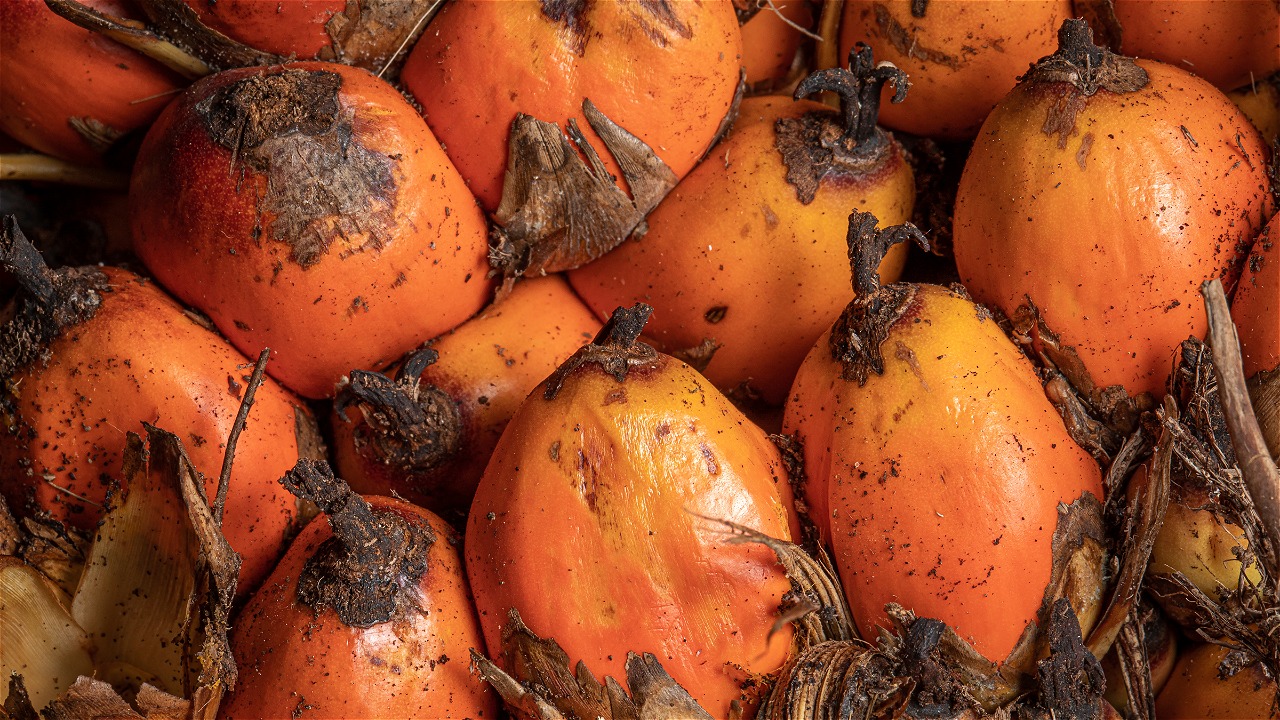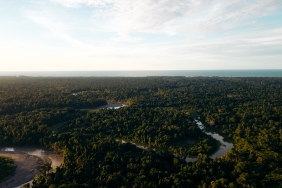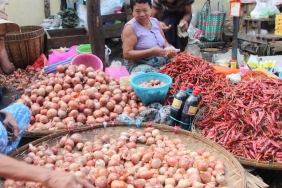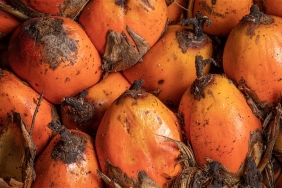FRIED FOOD VS ELEPHANT CONSERVATION
By Diah R. Sulistiowati, Forest and Species Campaign Coordinator
Do you like to eat fried foods? Especially if eaten while still hot, plus cayenne pepper or spiked with peanut sauce? It certainly feels macnyuss? And surely you do not stop at one fried food.
But did you know that if you like fried food, you are unconsciously contributing to the death of elephants? Must be shocked to death, right? Being accused of contributing to the killing of this protected animal? Why not? Because 70% of elephant deaths are caused by being poisoned by oil palm plantation owners, these elephants are considered pests because they eat the tubers (tips) of oil palm trees. Especially when these palms have entered the harvest stage? Imagine the losses experienced by palm oil farmers. Surely they take the easy way out by poisoning the elephants instead of chasing them away. And you are supporting these farmers by eating fried food, fried from the produce of the oil palm plantations that kill elephants!
How can you eat fried food and not be accused of killing these endangered animals? Yep, it's easy, just look for cooking oil or marganine with the RSPO logo. RSPO (Roundtable on Sustainable Palm Oil), is a non-profit association that brings together stakeholders from seven sectors of the palm oil industry - palm oil producers, palm oil processors or traders, consumer goods manufacturers, retailers, banks and investors, environmental or nature conservation, and social NGOs.
The RSPO and its stakeholders aim to develop and implement a global standard for sustainable palm oil. The representation of diverse stakeholders is reflected in the RSPO's leadership structure where Executive Board and Working Group seats are equitably allocated to each sector. With this, the RSPO follows the "roundtable" philosophy by giving each stakeholder group equal rights to bring group-specific agendas to the Roundtable, facilitating cooperation and interest of various parties towards a common goal and making decisions based on consensus.
With this logo, it is guaranteed that palm oil products coming out of producers who already hold RSPO certification are safe from elephant killing. Not only is elephant conservation regulated but also they implement and enforce standards consistent with international human rights law and respect for community rights.
The Roundtable promotes sustainable palm oil production practices that help reduce deforestation, conserve biodiversity, and value the lives of rural communities in palm oil producing countries.
The RSPO also ensures that no new primary forests or other high conservation value areas are sacrificed for oil palm plantations, that acceptable best practices are implemented, and that the basic rights and living conditions of millions of plantation workers, smallholders, and indigenous communities are fully respected. With this in mind, the RSPO proactively engages with oil palm growers, processors, companies, retailers, NGOs and investors to work together towards a global supply of socially and environmentally responsibly produced palm oil.
Sumatran elephant
The habitat and population of the Sumatran Elephant (Elephas maximus) has declined dramatically. About 70% of its habitat was lost or destroyed in just one generation (25 years) since 1985. A total of 23 pockets of elephant populations also experienced local extinction in that period, most of which were in Lampung and Riau.
During that same period, the most dramatic population decline occurred in Riau, with more than 80% documented. The latest calculation for the whole of Sumatra, estimated by conservationists from both members of the Indonesian Elephant Conservation Forum and government staff from relevant agencies at a workshop in early 2014, gives a figure of around 1,700 elephants remaining across Sumatra. This number is even considered an over-estimate, so field checks are needed. In fact, estimates in 2007, the population was still around 2,400 - 2,800 individuals.
Oil palm plantation companies that already hold RSPO will be audited regularly, in order to maintain performance and guarantee the preservation of species, if there are elephants in their plantations, they already understand how to handle it, they apply Elephant BMPs (Best Management Practices).
So from now on, check the cooking oil products you buy, make sure it has the RSPO logo so that you are no longer accused of killing elephants! Happy World Elephant Day!





